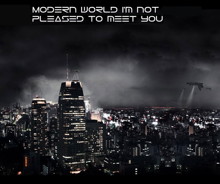
Secular humanists are concerned to reduce everything to purely human proportions, to eliminate every principle of a higher order and, one might say, symbolically to turn away from the heavens under the pretext of conquering the earth.fn9
”In any case one thing is certain in this is that the Orientals are a menace to nobody and do not dream of invading of invading the West in any sense whatever; they have enough to go for the moment in defending themselves against European oppression threatening as it does to assail even their minds; and it is curious, to say the least of it, to see aggressors adopting the pose of victims.” René Guénon in the 1940ies fn10
Excerpts From:
Al-Azhar Sufism in Modern
Egypt: The Sufi Thought
Ibrahim M. Abu-Rabi'* pt.2 - ed. OmarKN
This account refers to the Egypt of the 1950ies to 1970ies. A present-day sketch is [ here ].
We regret the violent events of 20130814, orchestrated by the Egyptian army and deep state.
The 2013 Egyptian coup d'etat took place on 3 July 2013.
Ensuing protests in favour of Morsi were violently suppressed culminating with the dispersal and massacre of pro-Morsi sit-ins on 14 August 2013, amid ongoing unrest; journalists[27] and several hundred protestors were killed by police and military force. Muslim Brotherhood members claim 2,600 people were killed.
Source: (https://en.wikipedia.org/wiki/2013_Egyptian_coup_d%27état)
§5 René Guénon On The Modern World
§6 Sufism According To Shaykh A.H. Mahmud
Footnotes
§5 René Guénon On The Modern World

Shaykh A.H. Mahmud was the first thinker in Egypt to introduce the life and thought of R. Guénon Abd Al Wahid Yahya to the Arab public. Guénon, who spent the latter part of his life in Egypt until his death in 1951, led a very isolated life except for regular meetings with a selected number of his close friends and disciples. Shaykh A.H. Mahmud was one of them from the time of his return from Paris in 1940. Guénon's thought was the catalyst that shaped the Shaykh as a traditional thinker believing in pure intelligence and the supra-rational basis of Islamic metaphysics.
Many of themes Shaykh A.H. Mahmud addressed in the 1960's and 1970's, stemmed from his relationship with R. Guénon Abd Al Wahid Yahya. Such themes, as the sacred and the profane sciences; Renaissance and humanism; the crisis of the modern world; cultural colonialism and the role of the intellectual elite in bringing about cultural and political transformations, were but a continuation of the original themes and issues discussed by Guénon.
R. Guénon Abd Al Wahid Yahya was never an ’Orientalist’. Rather, he was a seeker of those principles and guidelines found in the Orient that would save the world from its ”moral and intellectual crisis.”fn69 These principles have ceased to exist in social, political, and, to a certain extent, the religious discourse in the modern West. Guénon argues that the modern West has lost its traditional connection to the Sacred. The manifestation of such a loss was the emergence of the Renaissance, and the materialism and individualism that characterize the modern world. R. Guénon Abd Al Wahid Yahya affirms that the Renaissance and Reformation were primarily results made possible only by the preceding decadence; but, far from being a readjustment, they marked a much deeper falling off, consummating as they did, the definite rupture with the traditional spirit, the former in the domain of the arts and the sciences and the latter in that of religion itself, although this was the domain in which it might have seemed the most difficult to conceive of such a rupture.fn70
The modern world, according to R. Guénon Abd Al Wahid Yahya, is characterized by a rupture in its modes of thinking and expression with the traditional point of view, leading to the development of secular humanism. Guénon maintains that secular humanists are concerned to reduce everything to purely human proportions, to eliminate every principle of a higher order and, one might say, symbolically to turn away from the heavens under the pretext of conquering the earth.fn71 As a result, ’man’ and ’reason’ became the center of the world; principles became relative in nature, changing according to the whims and desires of men. R. Guénon Abd Al Wahid Yahya argues that the loss of the highest principles as an actual guideline in this life has caused intellectual havoc and confusion in the modern world.
R. Guénon Abd Al Wahid Yahya points to the question of progress and how it was perceived in the Western world since the beginning of the Renaissance. He says that ”the concept of endless progress, appearing in the second half of the 18th century contributed to convincing the human race that it had been ushered into a (p. 219) novel historical phase, the phase of the infinite civilization,”fn72 where man is able to produce and satisfy his material needs. According to Guénon, ”the utilitarian principle,” developed and sustained by the anti-traditionalist spirit in the modern world is not absolute. There are limits on economic and social gowth.
R. Guénon Abd Al Wahid Yahya says that the tripartite system of humanism, individualism and rationalism is the basis of the modern West. All of these elements contain an inherent opposition to the traditional point of view since they negate the necessity of metaphysical doctrine in the unfolding of history. These components of modern civilization have led progressively to the depletion of traditional sources in the West and to a confusion in the social order. R. Guénon Abd Al Wahid Yahya contends that Western democracy is a reflection of the illusion of progress: ”people cannot confer a power that they do not possess; true power can only come from above, and in this way, be it said in passing, it can be legitimized only by the sanction of something which stands above the social order, that is to say by spiritual authority.”fn73 Guénon argues that the higher cannot emanate from the lower, because the greater cannot come out of the less; this is absolute mathematical certainty that nothing can gainsay.fn74
In the light of this condemnation of the modern West in the name of tradition and the higher truth, it might be understood that Guénon condemns the undeniable scientific and material achievements of the modern West and the utilization of human reason in this process. This is problematic. But, it seems that while Guénon's main interest is to save the Western world after diagnosing its basic problem, Shaykh A.H. Mahmud continues the same theme by examining the effect of the West on the Muslim world.(p. 220)
§6 Sufism According To Shaykh A.H. Mahmud
 Like all traditional thinkers who have written on the subject of Sufism, Shaykh A.H. Mahmudfn4 considers Islam to have three complementary dimensions:
Like all traditional thinkers who have written on the subject of Sufism, Shaykh A.H. Mahmudfn4 considers Islam to have three complementary dimensions:
First, Islam or the complete submission to God Who is the One and the Real; second Iman or the belief in the major metaphysical doctrines of Islam as verified in the Qur'an, and third Ihsān, or excellence, which is the spiritual path leading to the recognition of the One. In other words, Islam in Shaykh A.H. Mahmud's eyes is composed of two basic dimensions: The exoteric and the esoteric.
The exoteric aspect is the Shari'ah that contains a vast body of ethical, educational, and social legislation that is necessary for the integration of man in society. Shaykh A.H. Mahmud maintains that the Shari'ah contains both the legislative and social aspects which are part and parcel of Islam. First and foremost, the Shari'ah is the basis for behaviour. As for the haqīqah (metaphysical truth), it is pure knowledge. This is the kind of knowledge that gives the Shari'ah its supreme meaning. All other knowledge is peripheral; the haqīqah is the center of the circle.fn86
Shaykh A.H. Mahmud says that tasawwuf is both a path or Tariqa and a goal or ghayah. The meaning of tasawwuf is sanctification or purification (safa), and its purpose is the direct vision or mushāhadah of God. He explains the necessity of the existence of the different paths towards achieving the sanctification of the self by saying that this multiplicity reflects the differences in conditions that require different methods of reaching the One. p. 223
The final goal and the supreme state to be achieved is the dissolution of the individual self. … In the final anlysis, tasawwuf is the combination of both the tariqa and the haqīqah.…
Shaykh A.H. Mahmud says that it is ”natural that ethics should be one of the major principles of tasawwuf, and that ethics, in its superior qualities, is the fruit of tasawwuf.”fn88 …As a metaphysical doctrine, Sufism is not detached from life and its transient complexity. As one S.H.Nasr says, ”since it (Sufism) is based on the social and juridical teachings of Islam, Sufism is meant to be practised within society and not in a monastic environment outside the social order.”fn89 This strong social aspect of Sufism is necessitated not only by the Shari'ah, but also by the mystical quest which contains both injunctions and prohibitions - people are ordered to believe in God, His angels, and the Day of Judgement; they are prohibited from display of arrogance, hypocrisy, and jealousy. This esoteric science or the science of the heart is complementary to the orders of the Shari'ah. In light of this, Shaykh A.H. Mahmud believes that the Muslims became stagnant only when they neglected, or were forced to neglect, the dynamic spirit of Islam which is the esoteric part of the Shari'ah. p.224
Footnotes
* Islamic Quarterly 32, 1988; p. 207-234
The author used ’Mahmud’ - it was here replaced by ’Shaykh A.H. Mahmud.’
The author used ’Guénon’ - it was here replaced by ’R. Guénon Abd Al Wahid Yahya’
fn4: The Life of Shaykh al-Azhar Abdul Halim Mahmud (1910 - 1978)
fn10: CMW106
fn69: CMW23
fn70: CMW25
fn71: R. Guénon, Orient et Occident
fn72: CMW106
fn73: CMW106
fn74: CMW106
fn86: A.H. Mahmud, al-Tasawwuf, p.226-227
fn88: A.H. Mahmud, al-Tasawwuf, p.161; S.H.Nasr, Revelation, Intellect, and Reason in the Qur'an; in his Sufi Essays; p.53
fn89: S.H.Nasr, Sufi Essays; p.37
CMW = R. Guénon, The Crisis of The Modern World, London 1948
→ Go to pages [ pt.1 ] [ Intro Sh Abd Al Wahid Yahya - R. Guénon ]
see also:The Life of Shaykh al-Azhar Abdul Halim Mahmud (1910 - 1978)
-
